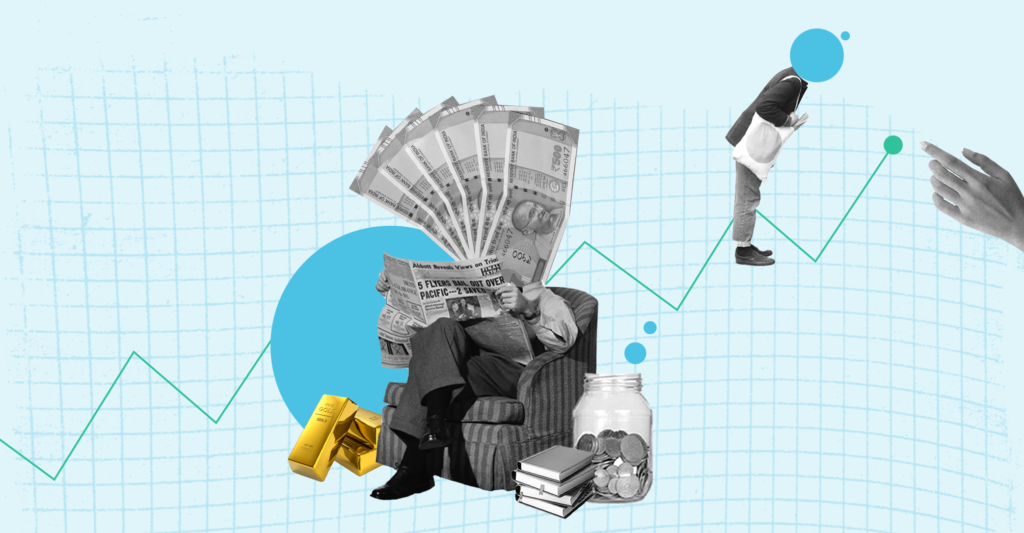Last Updated on Feb 7, 2022 by Manonmayi
Individuals draw loans for various purposes in life. But sometimes, the management of this debt and its repayment can go south. Not paying attention can further aggravate this problem, pushing you into a debt trap, thereby derailing your finances and future planning.
But, what exactly is a debt trap? Let’s find out!
Table of Contents
This article covers:
What is a debt trap?
A debt trap is a situation where you are forced to borrow more funds to clear out older loans. The debt keeps piling from different sources, and you get stuck in a vicious cycle. This problem arises when you spend more than you can pay. In many cases, it is attributed to an undisciplined lifestyle. However, there are many other causes of a debt trap.
Let us understand these before finding a solution.
What are the causes of a debt trap?
If you are at the point of furthering your education, you must be looking for a loan. Education loans come with a huge burden that you hope to pay off when you start earning. This starts accumulating your debt. Another scenario can be if you require funds for a medical emergency. The necessary treatments and procedures come at a hefty cost. It can put a heavy load on your finances. However, these are all almost unavoidable situations. What you need to cut out is the bad debt.
Avoid drawing unnecessary loans. Mindless spending and an extravagant lifestyle can be problematic when you do not have a high income to support it. Overdependence on credit cards and failing to pay your dues can be detrimental. It eventually leads to a point where you are just repaying your debt and saving next to nothing.
Before you know it, you are trapped. Now that you understand the gravity of the situation let us find a way to avoid it.
Ways to avoid falling into a debt trap
Understand the root cause
A major reason for falling into a debt trap is not being mindful of your financial situation. To avoid a debt trap, you must analyse your spending. Distinguish between necessary and avoidable expenses. Cut out spending on unnecessary and lavish things. Channelise any extra income towards fulfilling your outstanding dues. Introspection helps you find complete financial clarity. It is a prerequisite for creating a plan to escape the debt trap.
Free yourself from the wants, focus on the needs
The one thing to always keep in mind is the want vs need debate. Expenses such as rent and groceries are necessary and unavoidable. Semi-essentials are what make your life more comfortable. You must find an alternative for these to save a little extra. For example, opt for cheaper public transport instead of personal cabs. Choose a home-cooked meal over dining at expensive restaurants. Moreover, till you are in a comfortable space financially, it is advised to let go of non-essential expenditure. Indulge in luxuries only when you can pay for them yourself.
Do not incur more debt to clear old debt
Taking more loans to clear previous loans adds to the pressure and, if mismanaged, is counterproductive. It only pushes you further into the debt trap. Keep up with regular repayments to find your way out. Create a plan to make sure you can pull out that amount from your monthly income itself. If you take a loan, you will eventually have to find a way to repay that as well. The burden is not just financial but also mental. Avoid it altogether to steer clear of more unwanted tension.
Keep a check on your credit card
It is fun to swipe your card to make an instant purchase and look at an unchanged bank balance. However, the illusion breaks at the end of the month, when you have to make the payment. After all, it is also a form of a loan.
The golden rule to follow is not to purchase anything you cannot afford without a credit card. However, it is not always wrong to use a credit card. You can benefit from reward points and excellent deals that aid savings. It also improves your credit score to some extent. In any case, the underlying principle remains to repay on time. It can be detrimental if that is not adhered to.
Consolidate your debt
Debt consolidation is a great way to manage multiple loans. It becomes cumbersome to juggle several loans at once. Using this option, you can bring all your outstanding dues under a single liability, simplifying the process by tracking a single repayment. It also comes with the benefit of better payment options. Instead of servicing various interest rates, you just have to follow a single rate. If you use this tool wisely, you can significantly lower your cost of debt.
Many banks and financial institutions offer the option to consolidate your debt. Weigh all options and select the one that suits you best. Make sure you do not default on the payment and get lured by the freed-up capital.
Savings for a rainy day
It is vital to create an emergency fund. This comes in handy when you are in dire need of money. Ideally, you must set aside an amount equivalent to 4 to 6 mth of salary. There may be situations where you lose your job or cannot work for a while. There may also be a medical emergency. In fact, the pandemic is a great example where people got confined and were under deep financial stress. Those who had an emergency fund set up mitigated the trouble with ease. It is a far better option than searching for a loan under various constraints.
Manage your budget, balance, and behaviour
Bad budgeting is as bad as no budgeting. Never underestimate the importance of striking a balance between your income and expenditure. Keep track of where your money is coming from and where it is going. This will help you get clarity and keep you from crushing under debt.
Moreover, you must align your lifestyle with how much you earn. It does not always mean restricting yourself. Keeping the expenditure proportionate to your income will curtail unnecessary payments and burdens. Grow financially to justify and support your dream lifestyle.
Bottom line
If you are bound to splurge right after any amount is credited to your account, you must reevaluate your habits. Falling into a debt trap is easy, but coming out of it is never easy and can affect you mentally and financially. Prepare budgets and stick to them. This way, you can create a financially secure future for yourself.
- How To Declare Mutual Funds in ITR & Disclose Capital Gains in India? - Jun 6, 2025
- How To Sell or Exit Your Mutual Funds in India? - Jun 6, 2025
- Fund of Funds (FOF): Meaning, Types & Advantages - May 13, 2025





